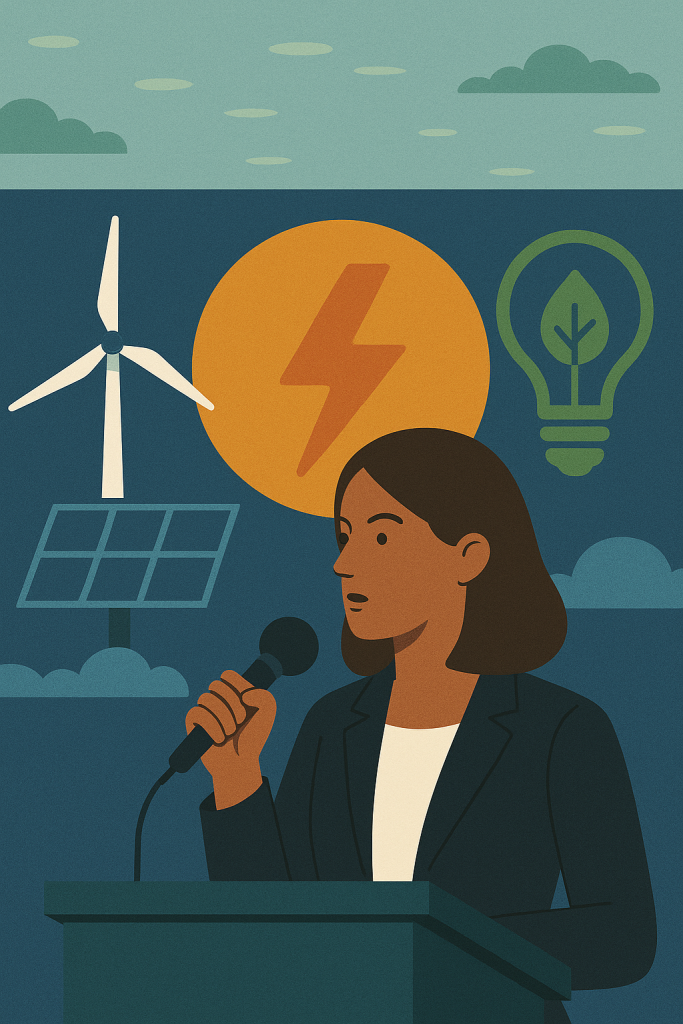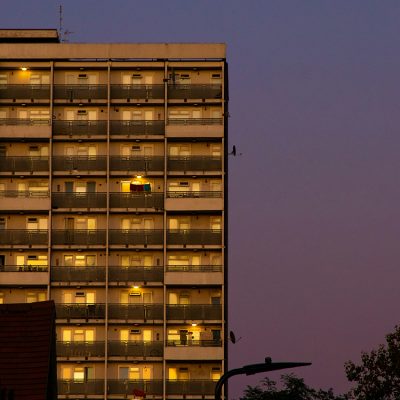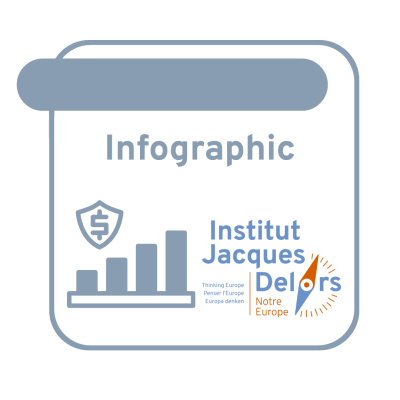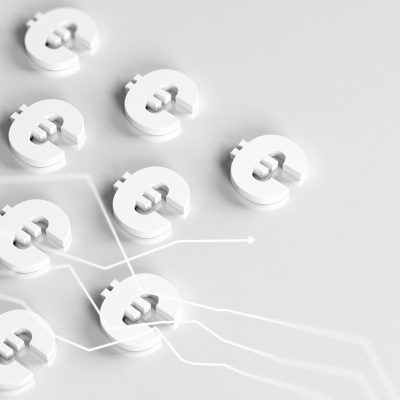Delivering democracy: The view less taken – how the energy transition and democracy need one another
by Namita Kambli (E3G) & Karin Thalberg (Jacques Delors Institute)

2023 saw the energy transition in Europe make significant strides. However, certain media narratives continue to imply that there is a lack of public buy-in for this shift to clean energy. A growing culture of energy citizenship reveals that a different story of shared ownership is possible.
Recent crises have hollowed out political trust in institutions, furthering a prevailing belief that democratically elected institutions are not adequately serving the needs of the public. This sentiment is exacerbated by observations across several member states, where political backing for ambitious energy reforms aimed at addressing cost-of-living concerns has been reversed. The rationale for this shift often revolves around a perceived lack of public consent for the energy transition. Certain media narratives contribute to this by asserting a direct link between clean energy legislation and a potential threat to democracy.
However, these claims oversimplify the situation and neglect key facts. The EU’s energy transition has leapt forward in recent years, marked by a surge in renewables and a commitment to phasing out fossil fuels at COP28. Numerous polls consistently demonstrate citizen support for this shift from fossil fuels to clean energy, with more than 8 in 10 Europeans favouring clean energy solutions.
Beyond public support, there has also been a steady rise in various forms of public involvement, fostering sustainable and democratic energy transitions. Labelled “energy citizenship”, such actions are being practiced at different levels and involve various actors in energy production, distribution, consumption, and governance. Crucially, they challenge the portrayal of citizens as passive recipients of the transition who the transition happens to instead of with.
Energy cooperatives, like the Energy Communities Tipperary Cooperative in Ireland, exemplify one form of energy citizenship. Originating in 2014 with four communities collaborating on energy efficiency projects, the initiative has evolved into a formalised cooperative with 15 communities. Its mission is to promote a more democratic and self-sufficient local energy system. The cooperative actively engages communities to raise energy awareness, promote local employment, and tackle energy poverty, with citizens retaining control through voting.
In Germany, Solocal Energy adopts a similar model of individual and collective ownership of energy infrastructure. The initiative connects residents in Kassel to buy and install solar panels on balconies, offering guidance for Do-It-Yourself (DIY) photovoltaic installations and organising neighbourhood climate circles. Guided by experienced facilitators and moderators, neighbourhood groups meet monthly to brainstorm ideas, and jointly plan and implement projects, culminating with an evaluation to celebrate success. Grounded in the principle of sociocracy, decision-making is based on consent, where proposals are adjusted until no objections remain, rather than seeking full consensus, which can be time-consuming. Convinced that energy is a basic right, the association aims to involve disadvantaged users by adjusting membership fees based on individuals’ financial capabilities.
Energie Partagée, an association that advocates, assists, and funds citizen-led renewable energy projects in France, is another example. Local authorities and community groups oversee the financing and governance of these projects. A core characteristic of this initiative is regular reflective dialogue aimed at defining what constitutes a sustainable and shared energy transition. This dialogue can take the form of an Energy Mix workshop, facilitating debates on future energy issues based on today’s choices, or movie screenings discussing the role of citizens in the energy transition. The purpose of these events is to cultivate a collective energy ethos and engage citizens in positive collaborative efforts.
While these examples are not perfect fixes, together they reveal that opportunities for public participation in the energy system exist and are already being embraced. This is crucial, as democracy depends on the ability of citizens to shape the societies they live in. By providing spaces for joint learning, discussion, and deliberation, energy citizenship can restore people’s sense of agency while nurturing trust and confidence in the energy transition.
Just as importantly, these forms of energy citizenship present a more refreshing vision of reconciliatory politics, countering the divisive media portrayal of the energy transition. The positive stories they tell must be repeated, resourced, and replicated through policy innovations that guarantee accessibility and more inclusive decision-making for all citizens. This will be a pivotal step to not only sustain the energy transition but also nurture democracy along the way.
The authors would like to extend their sincere thanks and gratitude to colleagues who helped shape this piece: Rheanna Johnston, Isabel Syrek, Elisa Giannelli, Pieter de Pous, and Manon Dufour from E3G and Camille Defard from JDI. The initiatives mentioned in the article come from the collective research of the EnergyPROSPECTS consortium (funded by the European Union’s Horizon 2020 research and innovation programme under grant agreement No 101022492).




